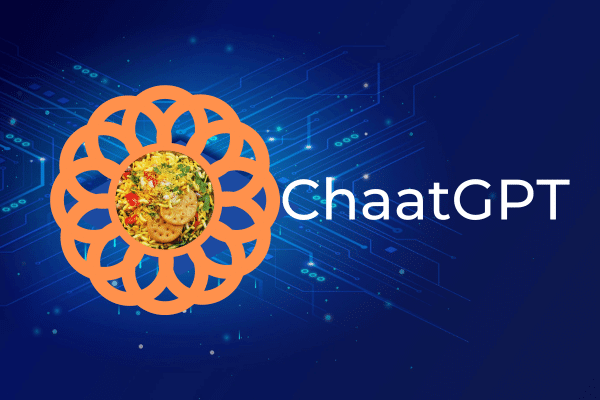A few days after Modiji’s rock star show in Sydney I came across a headline in the paper ‘ChatGPT: Boon or bane?’.
Not having heard of ChatGPT before, I thought it was an Aussie take on a popular Indian dish Mr Modi had mentioned in his speech as a 20,000-strong crowd ate out of his hands.
Or perhaps a new kind of chaat the visiting PM had found at Harish (oops Harris) Park.
How could any chaat – Google lists 375 types – be anything other than a boon, I thought, as I delved into the article.
On reading further, I realised that ChatGPT is not a new mouth-watering Great Party Treat, but apparently some hi-tech computer stuff associated with Artificial Intelligence that will dramatically change our lives forever.
I must learn more, I reckoned, so I can improve my own AI (Average Intelligence).
As a start, I modified my pen name from Ayer to AIyer.
Articles on ChatGPT and AI appear almost every day on every medium. The more I read, the more I am confused whether it is a godsend – or the Grim Reaper’s handiwork. Opinion about inducting AI in various walks of our daily life has been so divided amongst academia, researchers, topnotch techies and consumers, that it all resembles a world war of words between proponents and opponents.
Advocates amplify the bountiful benefits of AI like improving productivity, helping students produce better essays (why didn’t they develop this when I was a struggling student?) and enabling producers to create artwork, music etc effortlessly.
Recently ChatGPT was used to retrieve John Lennon’s voice to complete an unfinished Beatles song. Nearer home, late Sister McAuley addressed a Sydney school assembly 180 years after her death.
On the flip side, a Microsoft survey in 30 countries, including Australia, revealed that 45 per cent of employees fear for their jobs, as 85 per cent of businesses will look for people with AI skills. IBM’s CEO Anand Krishna says AI will replace 30 per cent of staff in some departments within five years. This is best summed up by the headline “AI is a great tool … if you still have a job.”
Dumb students using chatbots – derided as cheatbots – could outperform capable and honest candidates. Concerned about this, State governments have blocked ChatGPT in their schools. Some private schools have put in place AI detection programs, not foolproof though. Adelaide’s Flinders University is using Turnitin, a plagiarism detection tool. ACER (Australian Council for Educational Research) is planning to bring back oral examinations for medical students after seeing AI can help them pass examinations. AI-generated fake videos and art works may flood the market. Publishing houses may seek from writers statutory declarations that their work is not chatbot-generated. (By the way, I declare unreservedly, every word here is my own creative work).
This looks photoshopped but it’s clever, nonetheless. We know how to ‘Indianize’ & de-mystify everything we encounter! pic.twitter.com/zg6HCKo1MN
— anand mahindra (@anandmahindra) February 6, 2023
Current thinking in government circles ranges from placing regulations to banning AI outright. Now that the genie is out of the bottle with nearly a billion users, the sensible option is an international pact like the Nuclear Test Ban Treaty. Democratic nations may honour such a treaty but not so sure of some current dictators who, with no regard for rules-based order, dream of world dominance.
It is interesting to note some Indian links with concerns over AI.
* President Biden had a special meeting with Microsoft’s Satya Nadella and Google’s Sundar Pichai on this.
* Ramprakash Ramamoorthi, Manage-Engine research director, has warned that Google’s chatbot Bard could give unfettered access to its data to Google, which has countered this by saying it would cut that access to its own offspring. ‘Most unkindest cut of all’, as penned by the original Bard in his Merchant of Venice.
* Sam Altman, CEO of Open AI which developed ChatGPT, met with many world leaders including India’s to discuss the need for regulation.
According to an industry expert, ‘Once AI fuses with quantum computing, it will be too powerful to regulate and control’, even leading to extinction of the human race in the extreme instance. Reflecting this huge concern, Geoffrey Hinton, dubbed as ‘godfather of AI’, quit Google so he could freely speak about the dangers of this technology. This is eerily similar to the reaction of Robert Oppenheimer, father of the atomic bomb, who said after it was used twice, “Now I am become Death, the destroyer of worlds” quoting the Bhagawad Gita.
Will AI come to mean ‘Armageddon Inevitable’? Hope the app does not become the destroyer of its developer – humans – and allows them to continue to enjoy the chaats of the kind that Modi inspired Albanese to relish.
Read more: The demise of the cheque book




